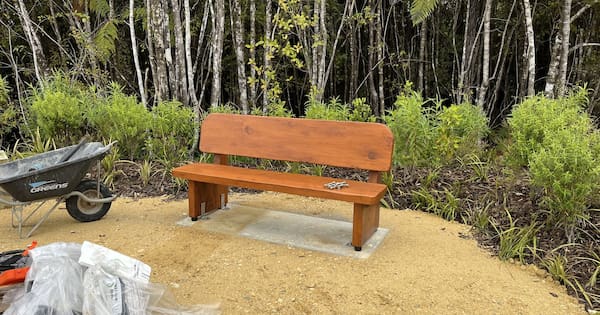
National will lift default KiwiSaver contribution rates further if re-elected, party leader Christopher Luxon announced today as he revealed his first election pledge.
He said National wanted to gradually lift default KiwiSaver contributions to 6% for both employers and employees by 2032. The current default rate is 3%.
“If we’re serious about building the future, and I am, it’s time to aim higher,” Luxon told party faithful in Lower Hutt.
Announcing the policy, the PM referenced the default contribution rate in Australia where employers must contribute 12% of wages to super accounts.
Under National’s proposal, default contribution rates would rise by 0.5% every year from April 1, 2029, until reaching 6% in 2032.
National reveals first election policy – how it’d impact your KiwiSaver – Watch on TVNZ+
Luxon said a 21-year-old earning $65,000 today could retire with around $1.4 million in KiwiSaver under the changes, about $400,000 more than under current settings.
“In Government, we are already lifting the default rate of KiwiSaver contributions for employers and employees from 3% to 4% by April 1, 2028,” the National leader said.
“But even after those changes, KiwiSaver contributions would be much lower than the equivalent scheme in Australia.
“For Kiwis working in New Zealand, that means smaller KiwiSaver balances and less financial security than friends or family working and saving in Brisbane, Sydney or Melbourne.
“Smaller retirement balances present a challenge for New Zealand as a whole, too, as we rely more on investment from offshore to fund the infrastructure, start-ups, and housing we need to grow our economy, create jobs and lift incomes.”
Party leader Christopher Luxon announced today National will lift default KiwiSaver contribution rates further if re-elected. (Source: 1News)
KiwiSaver would remain voluntary, with employees able to opt out or contribute at lower rates, while employers would be required to match contributions up to the default level.
The minimum contribution rate for those who participate will remain at 3%.
National said the changes would cost the Crown, in its role as an employer, about $90 million annually for each 0.5% increase.
The party said it expected agencies to find this money from existing baselines, “although some funding for cost pressures could become available for certain agencies”.
The Government’s already-announced default contribution changes
April 1, 2026: 3.5%
April 1, 2028: 4%
National’s proposed new default contributions, if re-elected
April 1, 2029: 4.5%
April 1, 2030: 5%
April 1, 2031: 5.5%
April 1, 2032: 6%
PM flags local govt reform coming ‘very shortly’
Luxon made the first policy announcement at a subdued event with a gathering of National Party members in Lower Hutt.
The PM also indicated local government reform was coming “very, very shortly,” saying the country “has so many layers of … government, it’s stopping us from getting things done.”
He added: “We are going to be serious about RMA reform. We are going to radically simplify the system so that we can get things done in this country, and, as part of that process, the consequence of that is we also need to radically simplify local government.”
Otherwise, Luxon gave a predominantly party-political speech earlier this morning, where he recognised the economic “pain” felt by the New Zealand public.
“Our focus is shifting the economic fundamentals, like exports, savings and investment, and a return to balanced budgets, so we don’t just recover, but make ourselves richer, and make sure Kiwis get ahead,” he said.
“National is about fixing the basics and building the future. The legacy of this Government can’t just be to shepherd the country through a challenging, but ultimately temporary, period of economic and social pain, left to us by Labour.”
The PM said: I understand that it’s hard going for some right now, as we experience a challenging, but ultimately healthy and essential pivot in the New Zealand economy.”
Speaking to media, Luxon was asked by reporters what he made about recent speculation of leadership changes in his party. He said: “I don’t take it seriously because I’ve seen those stories before. All I’m doing is focusing on my job.”
The PM said he retained the caucus’ confidence and hadn’t considered standing down.








